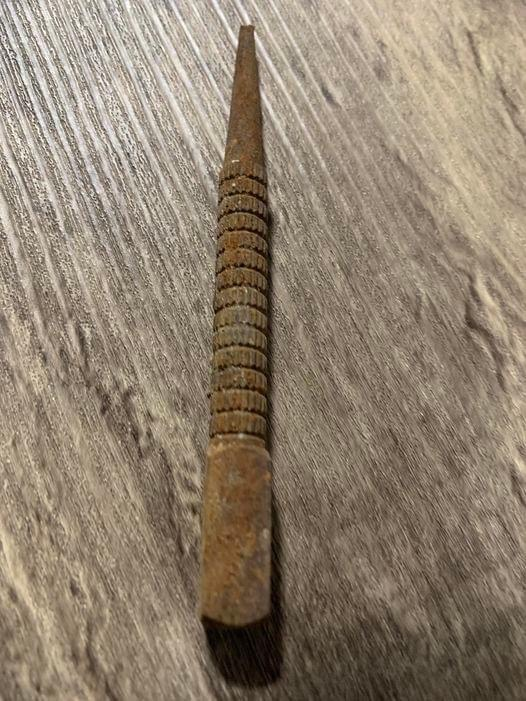The Tool That Every Grandpa Used – Here’s Why It’s Still A Game-Changer!
Remember those summer afternoons spent in your grandfather’s garage? The smell of sawdust mingling with the rhythmic sound of hammering created a symphony of craftsmanship. Whether fixing an old chair, building a treehouse, or crafting something unique, one tool stood out in that toolbox—the humble nail punch. This small, simple instrument may not have been the star of the show, but its role was undeniably critical in every project. For many, it was one of the first tools held in hand, learning the fine art of craftsmanship from someone admired.
A Family Tradition of Craftsmanship

For those who grew up in the ’50s, ’60s, ’70s, or even the ’80s, woodworking projects were often a family affair. Weekends were dedicated to fixing things ourselves. Instead of rushing to big-box stores for new items, we repaired what we had, ensuring it lasted for years. The vintage nail punch became a staple in these endeavors, contributing to everything from sturdy bookshelves to cherished picture frames.
The Function of the Nail Punch
So, what exactly is a nail punch? It’s a small, pointed tool designed to drive the head of a nail below the wood’s surface. This technique creates a smooth finish, perfect for painting over without any unsightly metal sticking out. While it might seem simple, the nail punch was essential for achieving that polished look in our projects—whether it was for a wobbly birdhouse or crown molding in the living room.
More Than Just a Tool
The nail punch wasn’t merely a tool; it symbolized an era that valued craftsmanship. Its design reflects this ethos: sturdy, ridged for grip, and made from durable steel. Gone were the cheap plastic handles of today; this tool was built to last.
The Patina of Time
Holding a vintage nail punch today is like grasping a piece of history. Covered in the patina of decades, its wear marks and rusted edges tell stories of hard work and dedication. These tools didn’t just sit idle; they were passed down through generations, each one contributing to countless projects and shared memories.
Changing Times and Craftsmanship
As times change, so does our relationship with tools. Nowadays, it’s common to rush to the store for the latest gadget or hire someone to fix that broken table. However, in the mid-20th century, DIY was the expectation. The vintage nail punch represented a do-it-yourself ethos, reflecting pride in one’s ability to build and repair.
Rediscovering Vintage Tools
For those fortunate enough to possess vintage tools, using them today feels like stepping back in time. There’s an undeniable satisfaction in picking up an old, reliable nail punch, knowing it has contributed to so many projects before. Whether restoring an antique piece of furniture or tackling home repairs, the grip of a vintage nail punch serves as a reminder of those cherished weekend projects from years gone by.

The Enduring Legacy of the Nail Punch
Though it may be a small tool, the legacy of the vintage nail punch is significant. It encapsulates a time when craftsmanship was about quality and every project had a story. If you have one lying around your garage or workshop, dust it off and give it another go. Remember the hands that used it before you. It’s not just a tool; it’s a piece of history, a connection to a time when making and mending were part of our everyday lives.
Conclusion
The vintage nail punch represents more than just a simple tool; it embodies a rich tradition of craftsmanship and family bonding. As we navigate a world filled with convenience and disposable items, let’s take a moment to appreciate the value of these timeless tools. They remind us of the satisfaction that comes from creating something with our own hands, fostering a sense of pride and accomplishment. So, whether you’re tackling a new project or reminiscing about the past, remember the nail punch—it’s a testament to the spirit of craftsmanship that still lives on today.






